The Well-Tempered Ear
Bach Around the Clock 2021 will incorporate many new aspects – including more audiences and artists of color — into the 10-day free virtual festival that runs March 17-26
Leave a Comment
PLEASE HELP THE EAR. IF YOU LIKE A CERTAIN BLOG POST, SPREAD THE WORD. FORWARD A LINK TO IT OR, SHARE IT or TAG IT (not just “Like” it) ON FACEBOOK. Performers can use the extra exposure to draw potential audience members to an event. And you might even attract new readers and subscribers to the blog.
By Jacob Stockinger
The Ear has received the following update about Bach Around the Clock (BATC), the annual March free event to celebrate the birthday of Johann Sebastian Bach (below). Like last year, the year’s will be virtual and online and spread out over 10 days, from March 17 to March 26.
The BATC 2021 Festival is shaping up brilliantly. We have about 50 participants signed up so far, with musical selections totaling more than eight hours.
As always, it has a nice mix of ages and levels of performers, from young students to seasoned professionals. It also runs from traditional instruments like the violin, viola, cello, oboe, bassoon, piano and organ as well as the human voice to more unusual instruments like the clavichord, 6-string electric bass and a saxophone quartet.
We are so grateful to all the participants who have volunteered to share their talents. (Below is the Webb Trio playing last year from home.)
Last year’s virtual format forms the basis of this year’s festival, but we’ve expanded on that in some very exciting ways.
BATC board member Melanie de Jesus (below) is producing two mini-films aimed at making the festival more accessible to participants. For the tech-challenged among us, the “How to Film Yourself” video will make it easier for musicians to participate virtually.
This film will be available this THURSDAY, Feb. 25, in time to help participants film and submit their performances by the March 5 deadline. Would you like to perform? For information about signing up for slots. Click here to let us know!
Make your own recording or request a time slot at a BATC venue where a professional videographer will create a recording for you to keep. Harpsichord, piano and organ are available.
Melanie’s “Bach for Kids” film will be published during the festival, and will introduce basic musical concepts to the youngest participants. It will culminate in a sing-along, play-along, dance-along performance of some simple Bach tunes, as demonstrated by some (very) young students at the Madison Conservatory, where de Jesus is the director.
Another significant new element of this year’s festival will be our evening Zoom events, including receptions with performers, and guest artists giving special performances, lecture/demos, master classes and panel discussions.
In keeping with this year’s theme of “Building Bridges Through Bach,” we will celebrate and feature musicians and guest artists of color.
We are thrilled to announce Wisconsin Public Radio music host Jonathan Overby (below) as our keynote speaker. Overby’s work to research and demonstrate how music, especially sacred music, serves as a cultural bridge, has taken him all over the planet. His core values are in close alignment with the theme of this year’s festival, and his address will set the tone for the rest of the festival.
The virtual format enables us to bring in guest artists from afar. Lawrence Quinnett (below), on the piano faculty of Livingstone College, a private, historically black college in Salisbury, North Carolina, will perform all six French Suites, and give a brief talk on his approach to ornamentation. (You can hear Quinnett performing French Suite No. 1 by Bach in the YouTube video at the bottom.)
Clifton Harrison (below, in photo by Stephen Wright), violist in the Kreutzer String Quartet, in residence at Oxford University in England, will give a master class for interested BATC participants. Information on how to audition for this opportunity will be shared very soon.
We are extremely pleased that Trevor Stephenson (below), artistic director of the Madison Bach Musicians, will give an evening lecture and demonstration on the Goldberg Variations.
Through his performances, interviews and extremely popular pre-concert lectures, Trevor has served as a very important builder of bridges to the music of J.S. Bach in Madison and beyond. It would be hard to overstate the impact of Trevor’s work to make Bach’s music accessible to local audiences of all ages and backgrounds. We’re sure viewers will enjoy this event.
An astonishing new development resulted from BATC’s outreach efforts to local high schools: Steve Kurr (below), orchestra director at Middleton High School and former conductor of the Middleton Community Orchestra, decided to incorporate BATC into his curriculum this semester.
Fifteen of his students will perform for BATC, filmed by four other students, and then the students will all view the performances and write essays about them.
BATC is delighted with this creative initiative, looks forward to receiving the videos from this cohort of students, and hopes to expand on this kind of outreach in future years. Maybe we can include the final essays on our website, if the students agree.
There are a few other ideas still under construction; perhaps a panel discussion with educators, or one with local musical bridge-builders (aka “Angels in our Midst”)?
Please help us keep this festival free and open to all.
Bach Around The Clock is a unique program in our community. It offers everyone the opportunity to share their love of the music of Bach. There is no charge to perform or to listen.
But the festival is not free to produce! BATC provides venues, instruments, videographers, editors, and services for performers and audience.
We need your support!
Click on there link below to donate securely online with a PayPal account or credit card: https://www.paypal.com/donate/?cmd=_s-xclick&hosted_button_id=WU7WWBW5LBMQJ
Or you can make a check out to Bach Around The Clock and mail it to: Bach Around The Clock, 2802 Arbor Drive #2, Madison, WI 53704
Bach Around The Clock is a 501(c)(3) organization; your donation is tax-deductible as allowed by the law. Donors will be listed on the acknowledgments page of the BATC website .
For the latest updates, please visit our website, bachclock.org, or our Facebook page, facebook.com/batcmadison.
We hope you will join us.
Marika Fischer Hoyt, Artistic Director, Bach Around The Clock, (608) 233-2646
Tags: "Goldberg" Variations, #501(c)(3), #ArtisticDirector, #BachAroundtheClock, #BachforKids, #BaroqueMusic, #BaroqueOrnamentation, #BlackCollege, #BlogPost, #BlogPosting, #BoardofDirectors, #BuildingBridgesThroughBach, #ChamberMusic, #ChoralMusic, #CityofMadison, #CliftonHarrison, #CoreValues, #CreditCard, #FacebookPost, #FacebookPosting, #FrenchSuites, #Goldberg"Variations, #GuestArtist, #HighCulture, #HigherGround, #HistoricallyBlackCollegesandUniversities, #HomeWebpage, #HomeWebsite, #InstrumentalMusic, #JacobStockinger, #JohannSebastianBach, #JonathanOverby, #KeynoteSpeaker, #KreutzerStringQuartet, #LawrenceQuinnett, #LivingstoneCollege, #MadisonBachMusicians, #MadisonConservatoryofMusic, #MadisonSymphonyOrchestra, #MadisonWisconsin, #MakeMusicMadison, #MarikaFischerHoyt, #MeadWitterSchoolofMusic, #MelaniedeJesus, #MiddletonCommunityOrchestra, #MiddletonHighSchool, #MusicEducation, #NonprofitOrganization, #NorthCarolina, #OfColor, #OnlineConcert, #OnlineFestival, #OxfordUniversity, #PanelDiscussion, #PayPal, #PianoFaculty, #Pre-concertLecture, #Quartet-in-Residence, #SacredMusic, #SaxophoneMusic, #SecularMusic, #SteveKurr, #StringQuartet, #TheEar, #TheUK, #TheUW, #TimeSlot, #TrevorStephenson, #VirtualConcert, #VocalMusic, #WisconsinChamberOrchestra, #WisconsinPublicRadio, #YouTubevideo, #ZoomMeeting, 501(3)(c), accessible, address, afar, age, aim, alignment, angels, annual, another, approach, artist, Artistic director, Arts, astonishing, audience, audition, Bach, Bach Around the Clock, Bach for Kids, background, Baroque, Baroque music, Bassoon, bassoonist, BATC, beyond, birthday, black college, blog, Blog post, blog posting, board member, bridges, brillitant, buikding, Building Bridges Through Bach, celebrate, cellist, Cello, challenge, Chamber music, choral music, Chorale, Christian, church, Classical music, clavichord, click, Clifton Harrison, composer, Concert, conductor, core values, creative, credit card, cultural, culture, curriculum, dance, dance-along, day, deadline, decide, delight, demo, demonstrate, demonstration, development, director, donate, donation, Early music, easier, eassy, editor, electric bass, element, England, enjoy, evening, exciting, expand, Facebook, feature, festival, film, format, free, French Suites, future, grateful, guest, guest artist, hard, harpsichord, HBUC, help, Higher Ground, historically, historically black universities and colleges, Home, home website, hope, hours, human, human voice, impact, incorporate, information, instrument, instrumental, instrumental music, interview, Jacob Stockinger, Johann Sebastian Bach, Jonathan Overby, keynote, kids, kind, know, Kreutzer String Quartet, Lawrence Quinnett, lecture, level, link, Livingstone College, local, Lutheran, Madison, Madison Bach Musicians, Madison Conservatory of Music, Madison Symphony Orchestra, mail, make, march, Marika Fischer Hoyt, master class, masterclass, Mead Witter School of Music, Melanie de Jesus, Middleton Community Orchestra, Middleton High School, mix, Music, Music education, musical, Musician, new, Nice, nonprofit, Nonprofit organization, North Carolina, of color, online, opportunity, Orchestra, organ, organist, ornamentation, outreach, overstate, overstatement, Oxford University, panel discussion, participants, performance, performer, Pianist, Piano, piano faculty, planet, play, play-along, pleased, popular, post, posting, pre-concert lecture, private, produce, professional, Quartet, reception, recording, research, residence, sacred, sacred music, Salisbury, Saxophone, seasoned, secular, secular music, selections, semester, services, share, sign-up, significant, simole, sing-along, Singing, slot, Sonata, soon, speaker, Steve Kurr, String quartet, Student, submit, talent, tax-deductible, teach, Teacher, technical, technology, The Ear, theme, thrilled, time slot, tone, total, traditional, Trevor Stephenson, tunes, UK, United States, University of Wisconsin-Madison School of Music, University of Wisconsin–Madison, unusual, update, US, UW, UW-Madison, venue, video, videographer, Viola, Violin, violinist, violist, virtual, visit, vocal music, voice, volunteer, way, Website, Wisconsin, Wisconsin Chamber Orchestra, wisconsin public radio, work, write, year, you, young, yourself, YouTube, Zoom
Classical music: How did Baroque composer Telemann get overshadowed and why is he being rediscovered? Trevor Stephenson talks about his all-Telemann concerts this weekend
2 Comments
IF YOU LIKE A CERTAIN BLOG POST, PLEASE SPREAD THE WORD. FORWARD A LINK TO IT OR, SHARE IT or TAG IT (not just “Like” it) ON FACEBOOK. Performers can use the extra exposure to draw potential audience members to an event. And you might even attract new readers and subscribers to the blog.
By Jacob Stockinger
This weekend, the Madison Bach Musicians (MBM) will give two performances of a concert devoted exclusively to the music of Baroque composer Georg Philip Telemann (below).
The performances are: Saturday night, Oct. 5, at 8 p.m. in the Atrium Auditorium of the First Unitarian Society of Madison, 900 University Bay Drive, where MBM will be artists-in-residence this season; the second performance is on Sunday afternoon, Oct. 6, at 3:30 p.m. at the Holy Wisdom Monastery, 4200 County Road M, in Middleton.
Tickets are $35 in advance and are available at the Willy Street Coop East and West, and at Orange Tree Imports. Tickets at the door are $38 for the general public; $35 for seniors; and $10 for student rush tickets that go on sale 30 minutes before each lecture. The lectures take place 45 minutes before the performance, at 7:15 p.m. and 2:45 p.m, respectively.
Why focus on the music of Georg Philipp Telemann (1681-1767)?
Trevor Stephenson, the founder and director of the Madison Bach Musicians, talks about it in an email Q&A with The Ear:
Why does Telemann, who was so respected in his day, seem to get far less play, fewer performances and less mentioning today than his contemporaries Bach, Vivaldi and Handel?
Telemann was born in 1681 — three years after Vivaldi and four years before Bach and Handel. He was astonishingly prolific and it is estimated that he wrote more than Bach and Handel combined.
On top of this, he was very highly respected and was widely published and performed during his life. Remember, it was Telemann — not Bach — whom the Leipzig council wanted to hire for the music director position in 1723. But Telemann was enjoying his wonderful new post in Hamburg—a thriving port city — and was not about to go back to landlocked Leipzig where he had spent his student days.
At any rate, after the 18th century had passed and its music became somewhat marginalized, in the early 19th century it was Bach’s music, not Telemann’s, that suddenly re-emerged.
Bach’s tremendous emotional depth, contrapuntal mastery and ability to control large-scale forms in an almost heroic way spoke with greater urgency to the Romantic sensibility than did Telemann’s elegant craftsmanship. Indeed, 19th-century Bach scholars often mean-spiritedly used Telemann as a foil for Bach.
Telemann’s music nevertheless received a modicum of performances in the early 20th century, but in the 1980s and 1990s, as the Early Music movement really got rolling—and the level of period-instrument performance increased—it became apparent that Telemann’s music really was hot stuff!
Now his music is enjoying a wonderful and well-deserved revival.
What are the appealing and admirable qualities you see in Telemann’s music? Are there any drawbacks to his compositions?
Telemann had a wonderful sense of melodic invention — probably music’s analog to an artist’s ability to draw — and his tunes seem to flow out effortlessly. And although his output was opulent, he had an uncanny sense of form and how much weight – duration — any given musical scene could bear.
He also was a masterful musical polyglot, able to jump back and forth easily between Italian, French and German musical idioms; and like Bach, he was also adept at integrating them into a unified style—this integration of national styles was a frequently acknowledged goal of 18th-century composers.
Telemann’s limitations are apparent when he is juxtaposed with Handel, who could dramatically really take the roof off and who could also find the inner essence of the human voice, and Bach who, like Shakespeare, through a near alchemy of sound and meaning could consistently define and further what it means to be human.
How and why did you put this program together? What unifies it and what would you like the public to know about it?
Madison Bach Musicians’ concertmaster and assistant artistic director Kangwon Kim (below left with Emily Dupere) did the heavy lifting in putting together this wonderful program of Telemann’s chamber music. MBM will present three of Telemann’s programmatic or story works, one church cantata and three purely instrumental selections.
With narration and graphics, we’ll walk you through how he cleverly depicts scenes from Swift’s Gulliver’s Travels (1726, below), which had been in print only two years when Telemann wrote his topical Gulliver Suite in 1728. Telemann loved ludicrous irony, like the tiny Lilliputians dancing a heavy chaconne—which Telemann notates in a hilarious, confounding mass of 64th and 128th notes. And then there’s the Brobdingnagian giants doing their rendition of a light-footed gigue, rendered in loopy, cumbersome whole notes!
We’ll also present the marvelous Suite Burlesque based upon Cervantes’ Don Quixote (below): Quixote’s love for Dulcinea, his jousting with windmills, and how a crowd mocks Quixote’s faithful, world-weary servant Sancho Panza.
To top it off, guest artist mezzo-soprano Clara Osowski (below) will sing the droll and sweetly amusing cantata about the demise — brought about by the cat! — of a favorite and very artistic canary. Osowski will also sing the church cantata Weicht, ihr Sünden, bleibt dahinten (Yield, You Sins, and Stay Behind Me). Telemann wrote more than 1,000 church cantatas.
The concert includes non-programmatic works for string band: the dramatic and Corelli-esque Sonata à 6 in F minor for two violins, two violas, cello and continuo; and the sparkling Sinfonia Spirituosa (heard in the YouTube video at the bottom). I will also perform some fascinating Fantasy miniatures for solo harpsichord, and will give a pre-concert lecture at both events.
For more information about the program, the performers and tickets, go to: www.madisonbachmusicians.org
Tags: #18thCentury, #19thCentury, #20thCentury, #AntonioVivaldi, #ArcangeloCorelli, #AtriumAuditorium, #BaroqueComposer, #BaroqueContinuo, #BaroqueMusic, #BlogInterview, #BlogPost, #BlogPosting, #CelloMusic, #ChamberMusic, #ChristianChurch, #ClaraOsowski, #ClassicalMusician, #ContrapuntalMusic, #DonQuixote, #EarlyMusicMovement, #FacebookPost, #FacebookPosting, #FirstUnitarianSocietyofMadison, #GeorgeFridericHandel, #GeorgPhilippTelemann, #GuestArtist, #Gulliver'sTravels, #HamburgGermany, #HarpsichordMusic, #HeavyLifting, #HolyWisdomMonastery, #HotStuff, #HumanVoice, #InstrumentalMusic, #JohannSebastianBach, #JonathanSwift, #KangwonKim, #Large-scale, #LeipzigGermany, #MadisonBachMusicians, #Mezzo-sopranoSinger, #MigueldeCervantes, #MusicalStyle, #MusicDirector, #OrangeTreeImports, #PeriodInstrument, #PortCity, #Pre-concertLecture, #RomanticMusic, #SacredCantata, #SacredMusic, #SanchoPanza, #SaturdayNight, #SeniorCitizen, #StringMusic, #Sundayafternoon, #ViolaMusic, #ViolinMusic, #VocalMusic, #WholeNotes, #WilliamShakepseare, #WillyStreetCoop, #WillyStreetCoopEast, #WillyStreetCoopWest, 18th century, 19th century, 20th-century, ability, afternoon, alchemy, analog, analogue, Antonio Vivaldi, Arcangelo Corelli, artist, artist-in-residence, Atrium Auditorium, Bach, band, Baroque, behind, blog, Burlesque, Cantata, cellist, Cello, chaconne, Chamber music, Christian, Christianity, church, Clara Osowski, Classical music, classicalmusic, composer, Concert, concertmaster, contemporary, continuo, contrapuntal, control, Corelli, council, counterpoint, craftsmanship, crowd, cumbersome, dance, dancing, days, depth, devoted, Don Quixote, draw, Dulcinea, Early music, elegant, email, emotional, enjoy, exclusive, Facebook, faithful, fantasy, fascinating, First Unitarian Society of Madison, form, forward, French, Georg Philipp Telemann, George Frideric Handel, German, giant, giants, gigue, goal, guest artist, Gulliver's Travels, Hamburg, Handel, harpsichord, heavy lifting, heroic, hire, Holy Wisdom Monastery, hot stuff, human voice, idiom, instrumental, interview, invention, irony, Italian, Johann Sebastian Bach, Jonathan Swift, jousting, Kangwon Kim, landlocked, lecture, Leipzig, like, Lilliputian, link, loopy, Love, ludicrous, Madison Bach Musicians, marginalized, marvelous, mastery, me, mean-spirit, meaning, melodic, melody, mention, Mezzo-soprano, Middleton, Miguel de Cervantes, miniature, movement, Music, Music director, musical, musical style, national, night, notes, opulent, Orange Tree Imports, output, performance, performer, period-instrument, play, polyglot, port city, position, post, posting, programmatic, prolific, public, pure, Q&A, rediscover, respect, revival, Romantic, sacred cantata, sacred music, Sancho Panza, Saturday night, scene, scholar, senior, sense, sensibility, servant, Shakespeare, share, sins, solo, Sonata, Sound, story, string, Student, style, subscriber, Suite, Sunday, tag, tickets, tiny, tune, tunes, uncanny, unified, urgency, use, Viola, Violin, violinist, violist, Vivaldi, vocal music, weight, well-deserved, whole, whole notes, Willy Street Coop, windmill, Wisconsin, wonderfu, world-weary, yield
- June 2024
- May 2024
- April 2024
- March 2024
- February 2024
- January 2024
- December 2023
- November 2023
- October 2023
- September 2023
- August 2023
- July 2023
- June 2023
- May 2023
- April 2023
- March 2023
- February 2023
- January 2023
- December 2022
- October 2022
- September 2022
- June 2022
- May 2022
- April 2022
- March 2022
- July 2021
- June 2021
- May 2021
- April 2021
- March 2021
- February 2021
- January 2021
- December 2020
- November 2020
- October 2020
- September 2020
- August 2020
- July 2020
- June 2020
- May 2020
- April 2020
- March 2020
- February 2020
- January 2020
- December 2019
- November 2019
- October 2019
- September 2019
- August 2019
- July 2019
- June 2019
- May 2019
- April 2019
- March 2019
- February 2019
- January 2019
- December 2018
- November 2018
- October 2018
- September 2018
- August 2018
- July 2018
- June 2018
- May 2018
- April 2018
- March 2018
- February 2018
- January 2018
- December 2017
- November 2017
- October 2017
- September 2017
- August 2017
- July 2017
- June 2017
- May 2017
- April 2017
- March 2017
- February 2017
- January 2017
- December 2016
- November 2016
- October 2016
- September 2016
- August 2016
- July 2016
- June 2016
- May 2016
- April 2016
- March 2016
- February 2016
- January 2016
- December 2015
- November 2015
- October 2015
- September 2015
- August 2015
- July 2015
- June 2015
- May 2015
- April 2015
- March 2015
- February 2015
- January 2015
- December 2014
- November 2014
- October 2014
- September 2014
- August 2014
- July 2014
- June 2014
- May 2014
- April 2014
- March 2014
- February 2014
- January 2014
- December 2013
- November 2013
- October 2013
- September 2013
- August 2013
- July 2013
- June 2013
- May 2013
- April 2013
- March 2013
- February 2013
- January 2013
- December 2012
- November 2012
- October 2012
- September 2012
- August 2012
- July 2012
- June 2012
- May 2012
- April 2012
- March 2012
- February 2012
- January 2012
- December 2011
- November 2011
- October 2011
- September 2011
- August 2011
- July 2011
- June 2011
- May 2011
- April 2011
- March 2011
- February 2011
- January 2011
- December 2010
- November 2010
- October 2010
- September 2010
- August 2010
- July 2010
- June 2010
- May 2010
- April 2010
- March 2010
- February 2010
- January 2010
- December 2009
- November 2009
- October 2009
- September 2009
- August 2009
Archives
- 2,495,386 hits
Blog Stats
Recent Comments
Tags
#BlogPost #BlogPosting #ChamberMusic #FacebookPost #FacebookPosting #MeadWitterSchoolofMusic #TheEar #UniversityofWisconsin-Madison #YouTubevideo Arts audience Bach Baroque Beethoven blog Cello Chamber music choral music Classical music Compact Disc composer Concert concerto conductor Early music Facebook forward Franz Schubert George Frideric Handel Jacob Stockinger Johannes Brahms Johann Sebastian Bach John DeMain like link Ludwig van Beethoven Madison Madison Opera Madison Symphony Orchestra Mead Witter School of Music Mozart Music New Music New York City NPR opera Orchestra Overture Center performer Pianist Piano post posting program share singer Sonata song soprano String quartet Student symphony tag The Ear United States University of Wisconsin-Madison School of Music University of Wisconsin–Madison Viola Violin vocal music Wisconsin Wisconsin Chamber Orchestra wisconsin public radio Wolfgang Amadeus Mozart YouTube









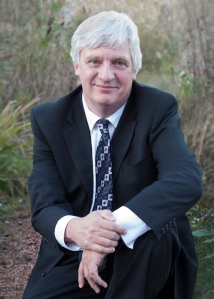
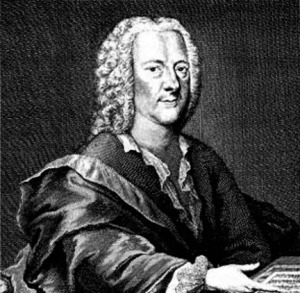
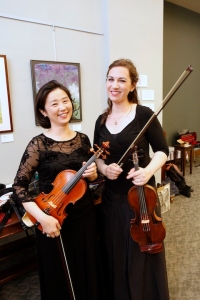


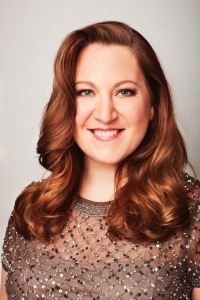
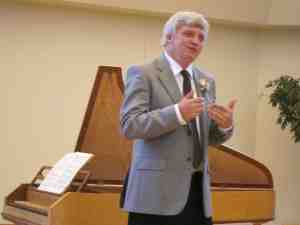
NPR names relevant classical albums in a musical Diary of the Plague Year of the pandemic, racial protests, wildfires and hurricanes
Leave a Comment
PLEASE HELP THE EAR. IF YOU LIKE A CERTAIN BLOG POST, SPREAD THE WORD. FORWARD A LINK TO IT OR, SHARE IT or TAG IT (not just “Like” it) ON FACEBOOK. Performers can use the extra exposure to draw potential audience members to an event. And you might even attract new readers and subscribers to the blog.
By Jacob Stockinger
For an unusual and difficult year, NPR (National Public Radio) and critic Tom Huizenga have found a new and unusual way to recommend this past year’s top classical music recordings.
On the “Deceptive Cadence” blog for NPR, Huizenga kept a personal month-by-month diary of “music and mayhem.”
For last February, for example, this ancient image of The Dance of Death inspired contemporary composer Thomas Adès to compose his own “Totentanz” or Dance of Death. (You can hear an excerpt from the work in the YouTube video at the bottom.)
Some of the thematically-related music is modern or contemporary, some of it is from the Baroque or Classical era.
In June, as protests against the death of George Floyd (below top) flared up and spread worldwide, NPR names a recording of the “Negro Folk Symphony” by African-American composers William Dawson and Ulysses Kay (below bottom), thereby helping to rediscover Black composers whose works have been overlooked and neglected in the concert hall and the recording studio.
Devastating wildfires on the West Coast, Presidential impeachment and hurricanes on the Gulf Coast also found their way into the choices of music to listen to.
It is an unusual approach, but The Ear thinks it works.
See and hear for yourself by going to the sonic diary and listening to the samples provided.
Here is a link to the NPR album diary: https://www.npr.org/sections/deceptivecadence/2020/12/21/947149286/music-and-mayhem-a-diary-of-classical-albums-for-a-troubled-2020
But many roads, if not all, lead to Rome, as they say.
What is also interesting is that a number of the NPR choices overlap with ones listed by music critics of The New York Times as the 25 best classical albums of 2020.
Some choices also are found on the list of the nominations for the Grammy Awards that will be given out at the end of January.
In other words, the NPR diary can also serve as yet another holiday gift guide if you have gift cards or money to buy some new and notable CDs, and are looking for recommendations.
Here is a link to the Times’ choices, which you can also find with commentary and a local angle, in yesterday’s blog post: https://www.nytimes.com/2020/12/17/arts/music/best-classical-music.html
https://welltempered.wordpress.com/2020/12/27/the-new-york-times-names-the-top-25-classical-recordings-of-2020-and-includes-sample-tracks/
And here is a list to the Grammy nominations: https://welltempered.wordpress.com/2020/11/28/for-holiday-shopping-and-gift-giving-here-are-the-classical-music-nominations-for-the-63rd-grammy-awards-in-2021/
What do you think of the NPR musical diary of the plague year?
Do you find it informative? Accurate? Interesting? Useful?
Would you have different choices of music to express the traumatic events of the past year?
The Ear wants to hear.
Share this:
Tags: #AbrahamLincoln, #African-AmericanComposer, #AlvinCole, #AmericanClassics, #AnnaClyne, #BaroqueMusic, #BerlinerBarockSolisten, #BerlinGermany, #BertrandChamayou, #Blackcomposers, #BlackMusic, #BlogPost, #BlogPosting, #BritishComposer, #BryceDessner, #C.E.P.Bach, #CarlPhilippEmanuelBach, #CarnegieHall, #CelloConcerto, #ChamberMusic, #ChoralMusic, #ChristianReligion, #ClariceJensen, #Classicalera, #ConcertHall, #ContemporaryMusic, #CoronavirusPandemic, #COVID-19, #DanceofDeath, #DavidLang, #DeceptiveCadence, #DonaldNally, #DonaldTrump, #DriftMutiply, #ElectronicMusic, #EnslavedPeople, #FacebookPost, #FacebookPosting, #FemaleComposer, #FerruccioBusoni, #FredericChopin, #FrenchMusician, #GeorgeFloyd, #GoodNight, #GrammyAward, #GrammyNominations, #GulfCoast, #HolidayGiftGuide, #HumanVoice, #iIanoConcerto, #InbalSegev, #JacobStockinger, #JesusChrist, #JonasKaufmann, #JustConstellations, #KirillGerstein, #LeopoldStokowski, #LeosJanacek, #LithuanianNationalSymphony, #LiveMusic, #LondonEngland, #LondonPhilharmonic, #MarinAlsop, #MassProtests, #MichaelHarrison, #MusicCritic, #MusicCritics, #NationalPublicRadio, #NaxosRecords, #NewMusic, #NewYorkCity, #NewYorkPhilharmonic, #NewYorkTimes, #OlegBezborodko, #OperaMusiclibretto, #OrchestralMusic, #PaulMoravec, #PhiladelphiaPennsylvania, #PianoConcertino, #PoliceShooting, #PoliticallyRelevant, #PresidentTrump, #ProtectYourselfFromInfection, #RacialJustice, #RecordedMusic, #RecordingStudio, #RoomfulofTeeth, #SanctuaryRoad, #SarahKirklandSnider, #SocialJustice, #SociallyRelevant, #SocialMedia, #SystemicRacism, #TenorSinger, #TheCrossing, #TheEar, #TheodoreRoosevelt, #ThomasAdès, #TomHuizenga, #TristanPerich, #UkrainianComposer, #UndergroundRailroad, #UnitedKingdom, #UnitedStates, #ValentinSilvestrov, #VikingurOlafsson, #VocalMusic, #WestCoast, #WilliamDawson, #WilliamGrantStill, #YouTubevideo, 2020, 2021, Abraham Lincoln, Adès, African American, Album, Alsop, Alvin Cole, American, American Classics, ancient, angle, anicent, Anna Clyne, April, Arts, audience, August, award, Bach, Baroque, Baroque music, beauty, behvaior, Berlin, Berliner Barock Solisten, Bertrand Chamayou, best, black, black music, blog, bond, British, British composer, Bryce Dessner, Busoni, C.P.E. Bach, cadence, California, call, Carl Philipp Emanuel Bach, Carnegie Hall, Catholic, cautionary, cellist, Cello, Cello Concerto, Chamber music, Child, Choir, Chopin, choral music, Christ, Christian religion, Christianity, Clarice Jensen, Classical era, Classical music, classicalmusic, Clyne, comfort, commentary, compelling, composer, Concert, concert hall, concerto, conductor, confrontation, Constellation, contemporary, coronavirus, dance, Dance of Death, David Lang, Davidsen, deals]new, death, December, Deceptive Cadence, diary, difficult, Donald Nally, Donald Trump, Drift Multiply, Early music, electronic, email, enslaved, enslaved people, ephemeral, escape, excerpt, Facebook, faith, fatal, fauna, February, Feburary, female, female composer, Ferruccio Busoni, flared, flora, folk, forward, fragility, France, Frédéric Chopin, freedom, French, George Floyd, Gerstein, gift, gift card, God, good night, Grammy, Gulf Coast, harmonie, Harrison, Holiday, holiday gift, holiday gift guide, hope, horrifying, human, human voice, Hurricane, image, impreachment, Inbal Segev, infection, inspire, Jacob Stockinger, Janacek, January, Jensen, Jesus, Jesus Christ, Jonas Kaufmann, June, Just Constellations, Kaufmann, Kirill Gerstein, l, Leopold Stokowski, Leos Janacek, life, like, Lincoln, link, Lise Davidsen, listen, Lithuania, Lithuanian National Symphony, live concert, live music, Living composer, living composers, local, London, London Philharmonic, lullaby, Marin Alsop, Masonic, mass, mayhem, me, mesmerizing, Michael Harrison, money, Moravec, Mother, motorcycle, Music, music critic, National Public Radio, nature, Naxos, Naxos Records, Negro, nerves, New Music, New York City, New York Philharmonic, New York Times, nocturnal, nocturne, nominations, November, NPR, October, Olafsson, Oleg Bezborodko, opera, oratorio, Orchestra, orchestral, pandemic, Paul Moravec, People, Perich, personal, Philadelphia, Pianist, Piano, Piano Concertino, planet, poetic, police shooting, Politics, positive, post, posting, precise, precision, President, President Trump, programming, protect, Protect Yourself From Infection, protest, race, racial justice, racism, rally, reality, recorded music, recording, recording studio, rediscover, relevant, Religion, repetition, response, Revelation, rising, Roomful of Teeth, sanctuary, Sanctuary Road, Sarah Kirkland Snider, September, share, signature, Silvestrov, sing, singer, smart, smooth, social justice, social media, solitude, sonic, sorrow, soundtrack, spread, statues, studio, sweet, symphony, systemic racism, tag, tangy, tenor, terminal, test, texture, The Crossing, The Ear, thematic, Theodore Roosevelt, Thomas Ades, thrill, times, Tom Huizenga, top, Totentanz, traditional, traumatic, trial, Tristan Perich, troubled, U.K., Ukraine, Ukrainian, Ukrainian composer, Ulysses Kay, Underground Railroad, unite, United Kingdom, United States, unusual, Valentin Silvestrov, Vikingur Olafsson, Violin, violinist, vocal music, voice, west coast, wildfire, William Dawson, William Grant Still, Wisconsin, witty, woman, work, worldwide, year, yesterday, YouTube